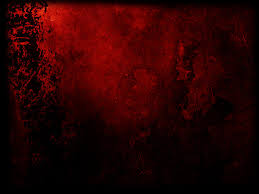记忆方法
将“bloody”与“blood”(血)的概念联系起来,通过联想血液的红色和暴力的场景来记忆。想象一片“bloody”(血腥的)红色区域,这样就容易记住这个单词与暴力、血腥相关的含义。
以上内容由AI生成, 仅供参考和借鉴
英语词源
- bloody (adj.)
- Old Engish blodig, adjective from blod (see blood). Common Germanic, compare Old Frisian blodich, Old Saxon blôdag, Dutch bloedig, Old High German bluotag, German blutig.
It has been a British intensive swear word since at least 1676. Weekley relates it to the purely intensive use of the cognate Dutch bloed, German Blut. But perhaps it ultimately is connected with bloods in the slang sense of "rowdy young aristocrats" (see blood (n.)) via expressions such as bloody drunk "as drunk as a blood."
Partridge reports that it was "respectable" before c. 1750, and it was used by Fielding and Swift, but heavily tabooed c. 1750-c. 1920, perhaps from imagined association with menstruation; Johnson calls it "very vulgar," and OED writes of it, "now constantly in the mouths of the lowest classes, but by respectable people considered 'a horrid word', on par with obscene or profane language."The onset of the taboo against bloody coincides with the increase in linguistic prudery that presaged the Victorian Era but it is hard to say what the precise cause was in the case of this specific word. Attempts have been made to explain the term's extraordinary shock power by invoking etymology. Theories that derive it from such oaths as "By our Lady" or "God's blood" seem farfetched, however. More likely, the taboo stemmed from the fear that many people have of blood and, in the minds of some, from an association with menstrual bleeding. Whatever, the term was debarred from polite society during the whole of the nineteenth century. [Rawson]
Shaw shocked theatergoers when he put it in the mouth of Eliza Doolittle in "Pygmalion" (1914), and for a time the word was known euphemistically as "the Shavian adjective." It was avoided in print as late as 1936. Bloody Sunday, Jan. 30, 1972, when 13 civilians were killed by British troops at protest in Londonderry, Northern Ireland. - bloody (v.)
- 1520s, from bloody (adj.). Related: Bloodied; bloodying. Old English had blodigan "to make bloody," but the modern word seems to be a later formation.
权威例句
- 1. In " It's a bloody miracle! ", " bloody " is used as an intensive word.
- 在 “ It‘sabloodymiracle! ” 一句中, bloody是用作加强语气的词.
- 2. He had a reputation for being bloody-minded and difficult.
- 他为人刻薄、难相处是出了名的。
- 3. This age-old struggle for control had led to untold bloody wars.
- 这场由来已久的对控制权的争夺已经引发了无数流血的战争。
- 4. They came to power in 1975 after a bloody civil war.
- 在一场腥风血雨的内战之后,他们于1975年上台执政。
- 5. The consequences of the counter-revolution have been extremely bloody.
- 反革命的结果是十分血腥的。

